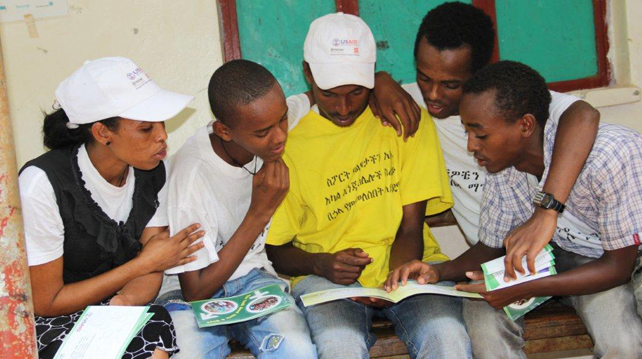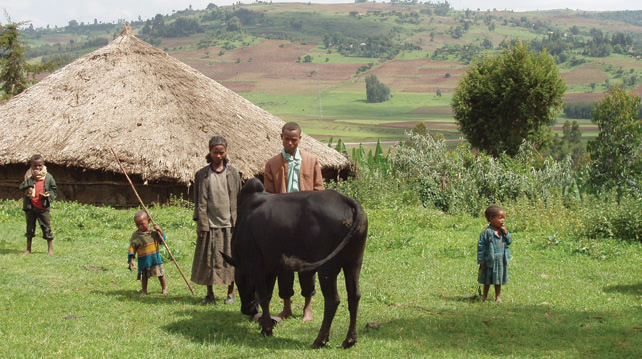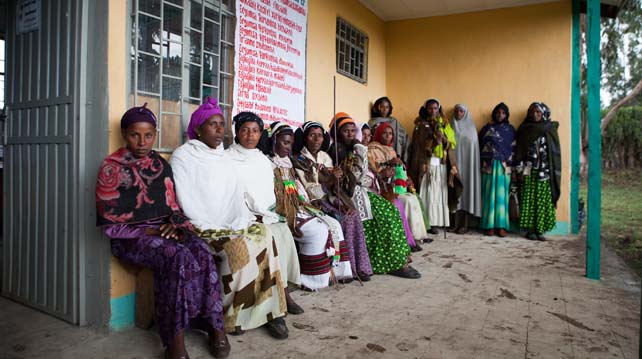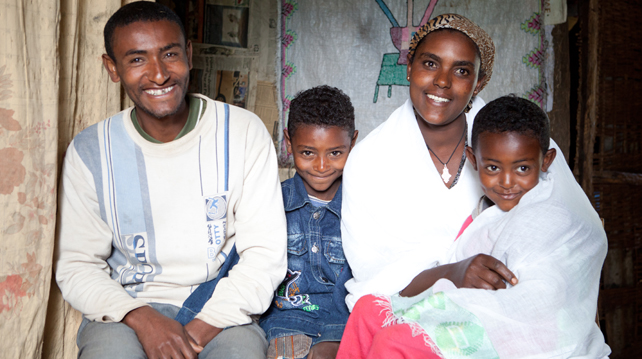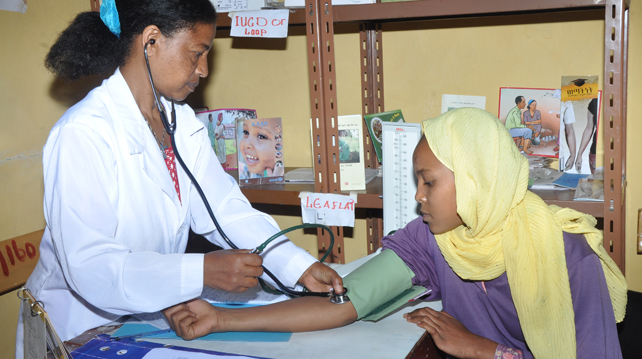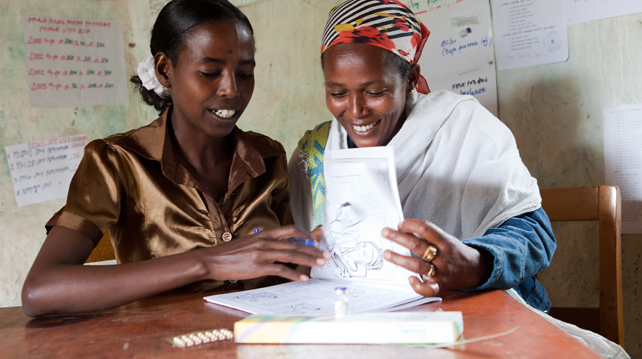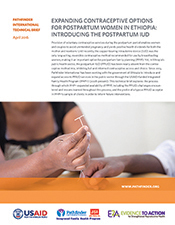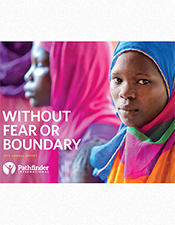Ethiopia
Ethiopia faces a tremendous number of challenges to development, compounded by a rapidly growing population and a vast, rugged geographic expanse.
Over 83 percent of the population resides in isolated, hard-to-reach villages, presenting major difficulties in health care and service delivery. Harmful traditional practices-like female genital cutting and early marriage-make gender inequality highly visible, limiting educational and employment opportunities for women and girls.
Ethiopia has the second largest population in sub-Sahara Africa, with the average woman bearing 4.8 children, placing an insupportable burden on families, communities and a country facing chronic food shortages and environmental degradation. Additionally, the need for increased access to family planning and reproductive health care is demonstrated by Ethiopia's high rate of maternal mortality and low rate of contraceptive use. And while Ethiopia's HIV prevalence rate is lower than many countries in sub-Saharan Africa, HIV and AIDS continue to impact communities and the health systems on which they depend.
In the 1950s, Pathfinder supported the establishment of the first family planning and reproductive health clinic in Ethiopia by providing funds to what is now known as the Family Guidance Association of Ethiopia. By providing technical and financial assistance, Pathfinder helped expand community-based family planning and service delivery through a community distribution network managed by local civil society organizations and the private sector. Today, Pathfinder supports the Ethiopian government's community-based health extension program, providing technical assistance and financial support at federal, regional, zonal, district, facility, and community levels.
While 45 percent of births in urban areas of Ethiopia are attended by skilled health personnel, this is true for only 3 percent of births in rural areas.
Our Projects
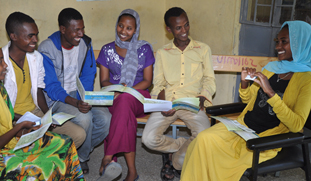
Young People's Empowerment in Reproductive Health Through Awareness and Service Expansion in Ethiopia (YERASEE)
As a part of the Integrated Family Health Program, YERASEE builds upon Pathfinder’s extensive work in Ethiopia to improve sexual and reproductive health services for young people (ages 10-24) throughout the country.
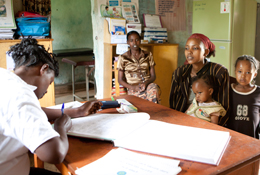
Integrated Family Health Program
A USAID-funded program that supports the efforts of the Government of Ethiopia to improve family planning/reproductive health services and maternal and child health in four regions of the country.
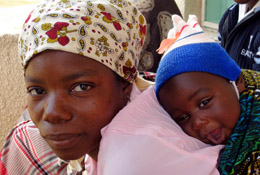
Evidence to Action for Strengthened Family Planning and Reproductive Health Services for Women and Girls (E2A)
The Evidence to Action Project (E2A) is USAID’s global flagship for strengthening family planning and reproductive health service delivery.
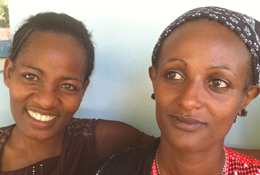
Cervical Cancer Prevention
With this five-year award from CDC, Pathfinder works with the Ethiopian Ministry of Health to increase access to and use of cervical cancer prevention services among HIV-positive women in Ethiopia.
Related Publications
Expanding Contraceptive Options for Postpartum Women in Ethiopia: Introducing the Postpartum IUD
This technical brief explores the process through which Pathfinder’s Integrated Family Health Program (IFHP+) has expanded availability of postpartum family planning, including the postpartum IUD, in Ethiopia.
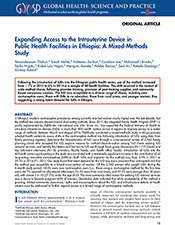
Expanding Access to the Intrauterine Device in Public Health Facilities in Ethiopia: A Mixed-Methods Study
Following the introduction of IUDs into the Ethiopian public health sector, use increased from <1% in 2011 to 6% in 2014 in a sample of 40 health facilities. The IUD was acceptable to a diverse range of clients, including new contraceptive users, those with little to no education, those from rural areas, and younger women.
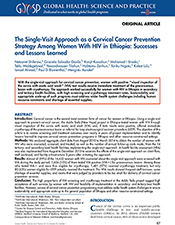
The Single-Visit Approach as a Cervical Cancer Prevention Strategy Among Women With HIV in Ethiopia: Successes and Lessons Learned
With the single-visit approach for cervical cancer prevention, women with positive “visual inspection of the cervix with acetic acid wash” test results receive immediate treatment of the precancerous lesion with cryotherapy. The approach worked successfully for women with HIV in Ethiopia in secondary and tertiary health facilities, with high screening and cryotherapy treatment rates.
Without Fear or Boundary: Pathfinder International's 2015 Annual Report
Forging a new path is part of Pathfinder’s DNA. Last year, in 26 developing countries, we pushed through barriers to ensure millions of women, men, and young people are able to access critical sexual and reproductive health care and choose their own paths forward. Read more in our 2015 Annual Report.
Related News
What the US can learn from Ethiopia about birth control
"If you asked me 15 years ago, there were only 600 health centers and all in very urban areas, but today there are more than 3,500," said Asnake, who is the country representative for Pathfinder International in Ethiopia. "And the health extension program started as a pilot program but now reaches every rural village in the country."
